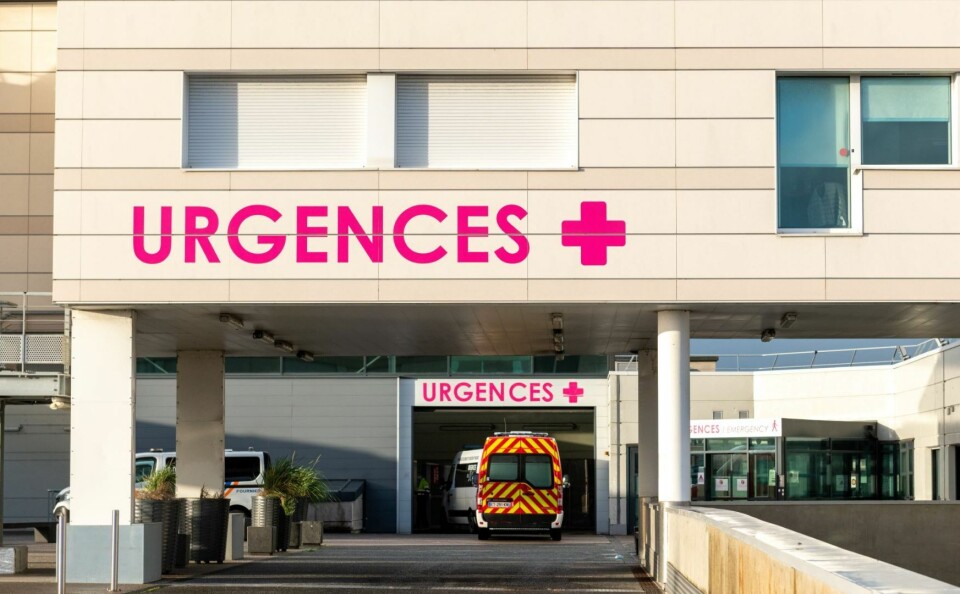-
Scam calls in France more than double in a year
Complaints about unsolicited calls are second only to those about fibre optic internet
-
‘Medical deserts’ major issue in upcoming local elections in France
Access to healthcare is now a more pressing concern than education, mayors say
-
‘Digital ID’ to be accepted at French airports this summer
Users of the France Identité app will be able to board certain flights using ID on smartphone
Growing strain on hospital emergency units in France, some closures
Tourist areas are under particular pressure. There are also increased strikes among emergency call responders

Emergency services in France have warned that they are becoming more overwhelmed this summer than last, with some hospitals having to close their emergency departments in tourist areas.
“The situation is worse than last year,” said Marc Noizet, president of Samu-Urgences de France, to Europe 1. “The situation is worse because it is now affecting all the departments in France, large units and small.”
Last summer (2022), hospitals warned that staff shortages, continuing Covid cases, and the intense heatwave conditions were leading to ‘dangerous conditions’ in many emergency units.
Read more: ‘Dangerous conditions’ in 127 hospitals and emergency units in France
But Mr Noizet said that the new factor this year is that “extremely tourist-heavy zones are in a very, very precarious position”.
For example, in Les Sables-d'Olonne (Vendée) and Arcachon (Gironde) “they have been forced to put a structure in the car park in front of the hospital, where doctors set up a little trauma unit to lessen the load on the emergency departments”. In Saint-Tropez (Var), the department was forced to close.
Mr Noizet said: “Even worse, we’re having to close Smur [services], which is the part of the hospital that goes out to the public or to your home if there is a severe incident. For example, near Angers, with this long weekend from August 15, seven Smur are closed. All urgent services are affected.”
Some A&E units, such as in Gassin (Var) and Oyonnax (Ain) are now forced to close overnight, leaving patients to travel further afield when seeking emergency medical care.
Others, such as Sarlat (Dordogne), were closed entirely for five days between July 30 and August 6 this year, and only open for two days during the week. In Maubeuge (Nord), the A&E unit will be closed during the last three weekends in August.
The head of the Smur services in Hauts-de-Seine, Gilles Jourdain, also issued an “alert” to Le Figaro. He said that his unit was being forced to transfer patients long distances to receive care.
He cited the example of a two-month-old from Ile-de-France, who his team needed to transfer to Rouen for a paediatric intensive care bed, because there were not enough beds closer to home.
“With his bronchiolitis worsening, the little boy needed to be admitted to intensive care,” said Mr Jourdain. “The teams made three checks for available places in the five suitable departments in the Paris region. Nothing, zero beds.”
He said that the “bad situation from winter is continuing” and that “the authorities seem incapable of offering a solution”.
Mr Noizet said that the government “recognises that there is a problem, but now we need to move things forwards”. He said that support workers - including assistants de régulation médicale (ARMs), first responders to the 15 emergency number - are poorly paid, with little career advancement, hence why 69 out of 100 departmental ‘15 centres’ are on strike.
New Health Minister Aurélien Rousseau visited the Toulouse Samu this week. He said that “some” of the demands from striking ARMs were "legitimate" and that he intended to “work on them in the coming weeks”.
What does this change for me if I need medical assistance?
Despite the difficulties facing the healthcare sector, the advice remains the same.
In the case of an emergency, you should still ring 15 to reach the SAMU, which can send out medical help to your location.
If you need to take somebody to an A&E unit, you should try and check online if the unit is still open, if you can. Alternatively, in an emergency you can call the SAMU (15) or the European Emergency Line on 112 to get more information on local healthcare availability.
Read also
Anger after man, 91, dies after waiting three days at French hospital
Non-emergency patients saturating French hospital ‘urgences’
‘Dangerous conditions’ in 127 hospitals and emergency units in France
























